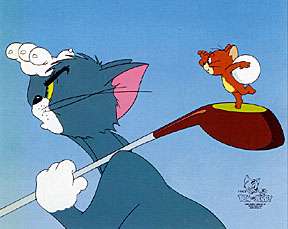I met a traveler from an antique land
Who said: two vast and trunkless legs of stone
Stand in the desert. Near them, on the sand,
Half sunk, a shattered visage lies, whose frown
And wrinkled lip, and sneer of cold command,
Tell that it's sculptor well those passions read
Which yet survive, stamped on these lifeless things,
The hand that mocked them and the heart that fed:
And on a pedestal, these words appear:
"My name is Ozymandias, king of kings:
Look on my works, ye mighty, and despair!"
Nothing beside remains. Round the decay
Of that colossal wreck, boundless and bare
The lone and level sands stretch far away.
"Ozymandias", Percy Bysshe Shelley
Disclaimer: Resist the urge to do an 'image search' for any of this
I've wanted to write about the brutal, almost incestuous ongoing series of wars between the Mexican cartels and the U.S. backed control and counterinsurgency efforts conducted by elements of the Mexican military and special forces for some time now, but delving into the conflict, it's genesis, it's global effects and other related issues, even only to a superficial depth, has proved somewhat similar to opening up Pandora's box, just for a peak and then becoming unable to turn away and having no real idea how to convey the entirety/severity of the experience to anyone.
Everything I've read, seen and/or heard about the conflict depicts a chaotic, bloody struggle for influence and power that is fueled by avarice, addiction and the perverse whims of ruthless, compunctionless warlords willing to do whatever it takes to first reach the top of a particular regional food chain and then stay there for as long as possible. Many of these guys make "Tony Montana" seem like a comic caricature, a cartoon.
This article (now admittedly a bit out of date) offers a "processable" overview of the evolution of the situation, from it's origins in the 80's up until last year. More information can be found
here as well as a
timeline.
In a lot of ways, this conflict feels like a sort of dystopic Western. The lawlessness, the gory violence, the bodies in the desert, the desert itself, (occasional) stoic heroism under fire, nefarious, cruel antagonists, dedicated groups of insurgents that defy the law of the land unto death, these are all the qualities that have given my favorite depictions of life in "the Wild West" it's untempered edge. While "the Wild West" is more a place of legend and myth, the actualities of the climate, geography and biology of western North America are such that it is the perfect setting for cruelty and violence, as those unprepared for the realities of life in such an untamed expanse often succumb to the lethality of the environment: the ruinous expanses of desert, the jagged, imposing mountain ranges running across the horizon, the predatory wildlife, the extreme temperature variations and endemic weather all conspiring to make life as difficult as possible for any and all wishing to explore/traverse them.
I'm reminded of a passage from "Blood Meridian" by Cormac McCarthy, one of the great books of the 20th century, the ultimate Western and a meditation on how violence and cruelty came to shape daily life in the West. In the book, McCarthy writes of a world that is just as dangerous as any of it's (often sociopathic) actors:
"It was a lone tree burning in the desert. A heraldic tree that the passing storm had light afire. The solitary pilgrim before it had traveled so far to be here and he knelt in the hot sand and his numbed hands out while all about in that circle attended companies of lesser auxiliaries routed into the inordinate day: small owls that crouched silently and stood from foot to foot and tarantulas and solpulgas and vinegarroons and the vicious mygale spiders and bearded lizards with mouths as black as black as a chow dog's, deadly to man and the little desert basilisks that jet blood from their eyes and the small sandvipers like seemly gods, silent and the same, in Jeda, in Babylon. A constellation of eyes that edged the ring of light all bound in a precarious truce before this torch whose brightness had set the stars back in their sockets."
There is a dystopic, almost otherworldly texture to this conflict, too. Places like
Ciudad Juarez feel/appear like something out of Cuarón's "Children of Men". Maybe they inspired him. These places are stuck in a place that is not quite the present, not quite the future, a grimy, exhaust-filled environment where dead bodies, often mutilated, are discovered almost daily. And hidden away beneath all the grit and blood, we find the
raison d'être of places like Juarez: these towns act as funnels for tens of millions of dollars in cash, drugs and weapons that
criss-cross the border (launched by catapults through the air, ferried across and under the ground inside suitcases or prosthetic appendages or people themselves).
These places also underscore a shocking financial disconnect between the affluent
narcos (and their government and business connections) and the humble, if not downright impoverished masses. It is in places like Ciudad Juarez where we come to understand the roots of the pervasive corruption that has paralyzed the Mexican state because, in places like these, confronted with crushing reality of the thousands of dead bodies piling ever higher, there exists an unavoidable impulse, an urge to ask a dangerous question: is it better to work your life away, grinding out a meager (yet honorable?) existence or mortgage your future for a few years of (relative) prosperity, a few creature comforts, the ability to lose oneself in an ephemeral hedonism, a reprieve from reality?
The temptation and pervasive, desperate escapism seems to prove too great for many involved in and affected by the conflict, not just the dedicated, hardened
narcos. While conventional wisdom would dictate that the best way to carve up the profits would be through a union of the disparate cartels, thereby minimizing costly collateral damage and the effects of vicious in-fighting, a move that would allow the coalition to consolidate power, the operating motives of the actors involved frequently embody the most animalistic aspects of the human condition and so the consequences are, in a word, messy.
The territorialism exhibited by rival cartels, a reactionary measure inspired by greed and a desire to settle old scores is fueled by (
unbelievably cruel) violence. Fear and appeals to a ubiquitous rapacity, to an ambition for money and power, serve as the primary means of motivation. They engender complicity among the business and government elite, engineering a pervasive apathy, a willingness to look the other way, to let a system already rife with corruption fall into more irreparable disrepair. They also come to delineate the boundaries, of both territory and tactics, as the drug conflict in Mexico continues to devolve into more sadistically inventive savagery.
There are places in Mexico where unbridled ambition and a willingness to regularly perpetrate unspeakable acts of violence are the impulses that dictate daily life. Case in point:
The Pozolero, whose real name is Santiago Meza López, a man who got his nickname by dissolving the bodies of people killed by a drug lord named Teodoro "El Tres Letras" García Simental.
Pozole is the name of a traditional Mexican stew. Instead of the traditional ingredients of tomato sauce and pork, Meza Lopéz used dismembered human bodies and sulfuric acid to prepare his version. Here's how it work: the butchered remains of the drug lord's enemies are placed into 55 gallon barrels and then a generous amount of dissolving agent is added. The barrels are sealed and buried and what was once a human being is slowly reduced to an unidentifiable, sludgy pulp. This helpful service cost García Simental $600 dollars a week.
El guiso, one more iteration of the stew theme
, is another culinarily inspired euphemism, this time for an unthinkable means of execution. In the case of
el guiso, the victim is bound, then lowered into a steel drum. They are then doused with gasoline and set on fire. Once they've burned to death, the remains are sealed and the barrel is interred in some lost corner of the desert. Or, the barrel, with the charred remains of the last victim still inside, is used as the "pot" to make another batch of "stew". Again, this is not fiction, this is not an alternate universe, this is not another episode of
Breaking Bad. This is the reality of life in much of Mexico,
along with decapitated bodies hanging from highway overpasses, bags filled with severed heads being dumped onto club dance floors in the middle of a busy night, the flayed face of a man stitched to a soccer ball then left on his family's front porch. There are mutilated bodies showing up in playgrounds and beheadings by chainsaw, the footage of which is then uploaded to different websites. These grotesque viral videos are, ostensibly, used to terrify and intimidate rival gangs into submission or capitulation. But that doesn't happen. Instead, there is retribution, escalation, an eye for eye, head for a head and the cycle keeps circling downwards into even greater chaos and atrocity.
I suppose there is a certain liberation to selling one's soul. Without being weighed down by a conscience or considerations about morality/mortality, murder, torture, kidnapping, rape, even of the most extreme varieties, become nothing more than means to achieving an end, the tools for realizing ambitious dreams of wealth without end, of being able to escape, to impose yourself on such an unimaginably hellish environment (instead of the environment imposing itself on you). Increasingly, in cultures all over the world, we are taught that more is better: more money, more power, more freedom. The graphic realities of the Mexican Drug War remind us of the eventual consequences of unchecked ambition and a boundless material gluttony. Unfortunately, as long as the demand for drugs exists north of the border, things will not change any time soon.






















